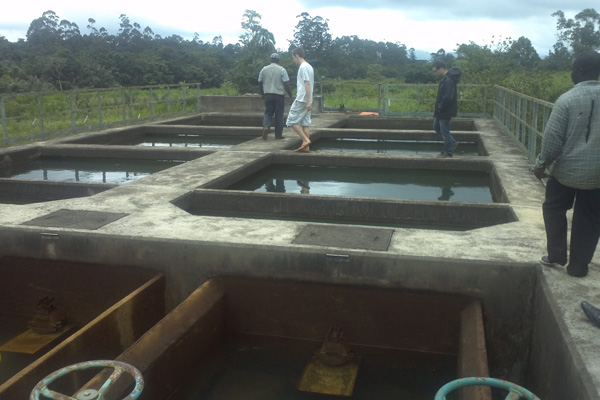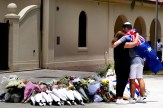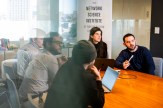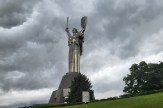Cultural immersion sparks innovation

As part of Northeastern’s inaugural Dialogue of Innovation and Civilization program, more than a dozen students developed sustainable solutions to a range of economic and agricultural challenges facing farmers in Cameroon.
The program, set in the town of Bali, was established and launched by the College of Engineering this summer. Over a six-week period, students worked with more than two dozen peers from Cameroon Christian University to ease the challenges facing farmers through a human-centered design model—an approach in which the needs of the people are the focus of the solutions. The students’ approach met three requisite criteria: desirability, feasibility, and sustainability.
The immersive experiential-learning opportunity comprised classes and fieldwork in area villages and cities. There, students connected with many stakeholders—from the farmers themselves to government officials—to identify societal needs and innovative, engineering-based solutions.
“The trip to Cameroon has forever shaped my perception of engineering and development,” said Gloria Singleton, a chemical engineering major who participated in the Dialogue. “The opportunity to make a difference, to build, to grow, and to be part of something substantial will stay with me as I navigate the path ahead.”
The program was led by Richard Harris, assistant dean of academic scholarship, mentoring, and outreach, and director of the Program in Multicultural Engineering, as well as William Tita, lecturer of entrepreneurship and innovation. Lauren Machunis, an academic adviser in the College of Engineering, accompanied them.
Students ultimately proposed seven solutions, among which involved: gathering information about the town’s progress and demographical information by taking a census; increasing rainwater harvesting potential and training villagers to use pedal powered pumps; and increasing public knowledge of water-borne diseases and providing tips for managing alternative sources of water.
The Dialogue also provided students the opportunity to understand the historical, cultural, social, and political context of Bali’s technological challenges. Over the course of the program, they examined how these challenges may be addressed through technological innovation, social innovation, and entrepreneurship.
“Our objective utilized the group of students as the change agents in order to effectively address the challenges that the farmers are facing,” Harris said. “We went to Cameroon with the vision to start an initiative that encourages the transformation of raw materials into a more profitable finished product and came out with three proposed solutions that we believe will facilitate this change.”
The students’ work aligned with the United Nations Millennium Development Goals. If taken into consideration by local authorities, Harris said their projects could lead to sustainable community development and an improved standard of living with regard to water resources, renewable energy, and community empowerment.





